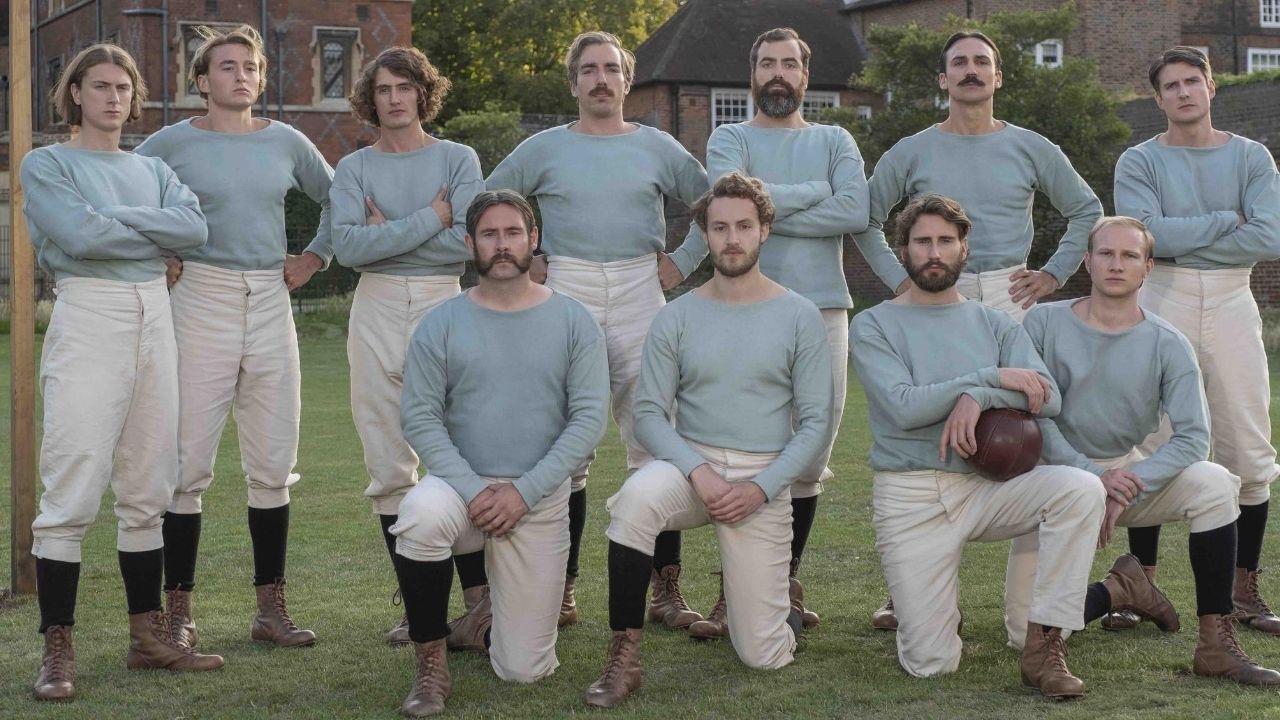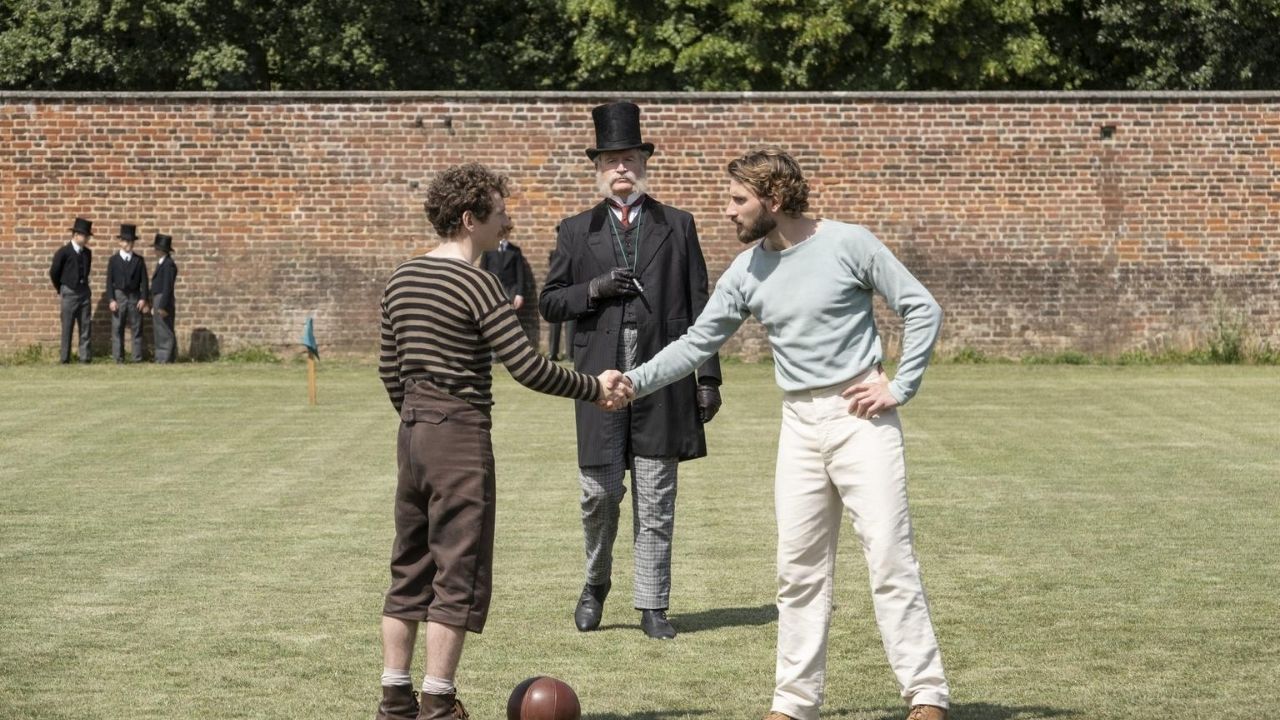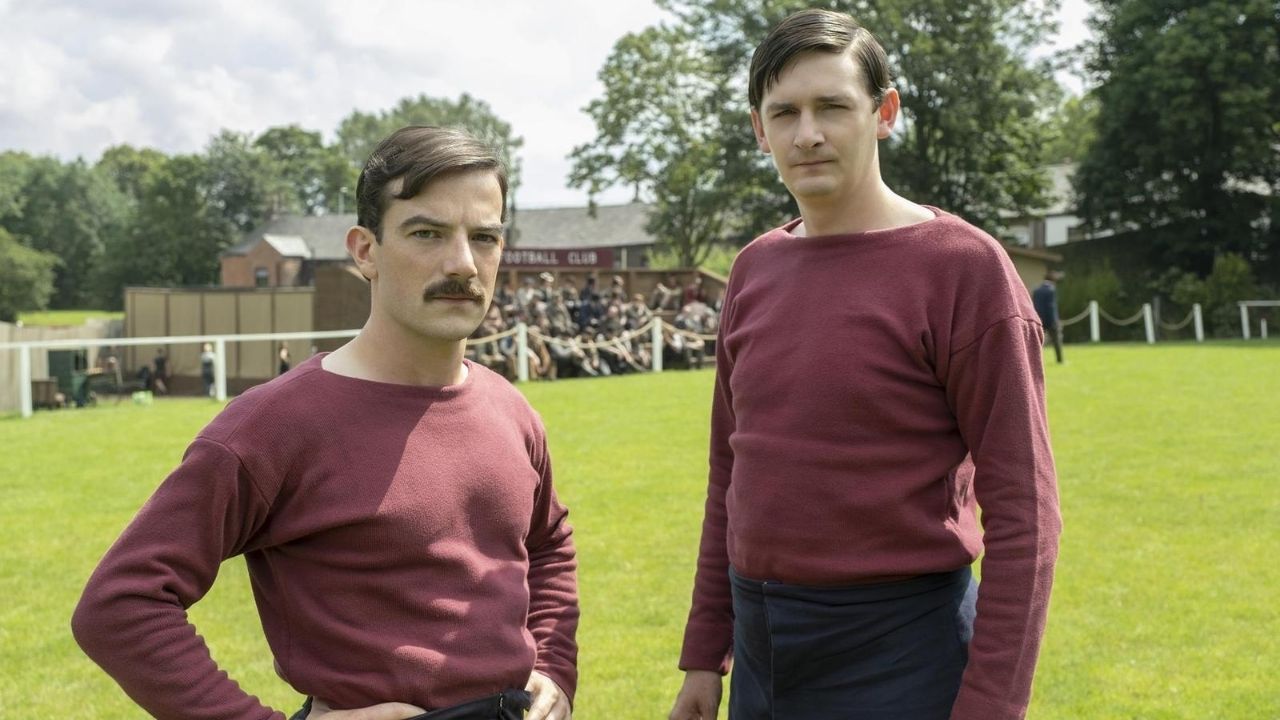True Events that Inspired Netflix’s Sports Drama The English Game
Who doesn’t enjoy rooting for the underdogs? If you do too, head to Netflix and binge on the latest historical sports drama The English Game. As a fringe benefit, find out how football (or soccer) came to be the most-played sport around the world.
The benefit is only fringe because there is a lot more ongoing in this Netflix Original historical fiction than just football.
Centered on FA Cup Final in 1883, a match that almost happened in real time, The English Game tells the story of the first time a working-class factory team had bested an upper-class football team.
We all know how that one ends. But I know you are all set in you favourite Jersey with a popcorn tub, ready to reminisce the good ol’ times real people kicked real footballs. But hold right there, before you go on to binge the six-part football not-such-an-extravaganza streaming on Netflix as we speak, here’s everything you should know about the true story behind it. To make the experience all the more intense!
What was the Football Association?
In 1863, 11 elite London-based schools decided to establish formal rules for football and create the sport’s first governing body aka Football Association. Now the only reason Football Association came into existence was so upper class school boys could play against one another under a set of agreed rules. Chief writer on the show Julian Fellowes, of the Downtown Abbey fame, explained during an interview with The Telegraph in March 2020. “…from the moment the rules were established in the 1860s, the sport increased in popularity seismically.”
Though legally an amateur sport, local teams started recruiting talented working-class players with secret payments, which lead to controversy, as the upper-class teams didn’t want working professionals infiltrating what they saw as their game. The FA would eventually legalize the payment of wages to players in 1885, but up until then, tension brewed between the moneyed amateurs and working-class professionals.

“But, from the moment the rules were established in the 1860s, the sport increased in popularity seismically.”
The Netflix series The English Game follows the beginning of this professionalization of what was a community sport played purely for recreational purposes and by those who could afford such expensive interests. Then, monetization came and the sport opened up for the world to participate in.
The Prince Elite
Arthur Kinnaird, the 11th Lord Kinnaird, was a British principal of the Football Association. He is considered the first big football star in the UK. Born into an elite family, Kinnaird attended the royal-favorite Eton College and began his football career with the Wanderers, before becoming a member of Old Etonians.

In the film he is an prudent upper-class English gentleman who respects his wife until she points out he is scared of losing a match to the rag-tag mill workers’ team. But later in The English Game, he becomes a vocal supporter of the very same mill workers and also of players getting paid to play for teams. (A gentle heart-ahem!)
The Talented Pauper
On the working class side was Fergus “Fergie” Suter, a stonemason born into a working-class family in Scotland. He is portrayed as a mill worker in the Netflix series.
Fergie is recognized as the first-ever professional football player, as he was the first footballer to accept payment for his role.
He started off playing for Glasgow’s Partick team, later moved to England to play for Darwen and, in 1880, jumped on to the Darwen’s local rival team, the Blackburn Rovers. He was paid to move to England at a time when it was forbidden for teams to pay their players.

What Happened in the 1883 FA Cup Final?
In the show, the 1883 finale takes place between the Eton public schoolboys and the mill workers of Blackburn, with Blackburn winning 2-1.
However, The English Game’s climax actually combines the events of several different FA Cup finals.
In the 1882 final, Blackburn Rovers, with Suter as part of the team, did indeed play against Arthur Kinnaird’s Old Etonians, but actually lost the game 1-0.
The following year, however, a different team – Blackburn Olympic – reached the finals and bested the Old Etonians 2-1.
The English Game’s storybook ending when the Rovers beat Kinnaird’s team, actually does not happen until 1884.
So everything portrayed in The English Game did happen at some point in history but not precisely or chronologically as portrayed in the Netflix series.
Stream or skip
Well, you may open Netflix now. I think you probably have already decided to. No point convincing you otherwise.
But it is my duty as an honest reviewer to prepare you for some paranormal football-ish activity.
Get ready for some Beckham-level football at a time when people were decades away from even shin socks. Also, there will be so many goals scored within minutes of starting a game that is only supernaturally possible. There will also be instantaneous, yet successful, change of strategy as well as the team captain (not kidding!) during half-time.
Starting with the moustaches! What’s with them? I get that groomed facial hair was a symbol of gentlemen at the time. But why depict those sans-moustache as lesser men? The treatment is atrociously obvious.
Then there is the cultural angle to it all which amused for a bit, until it did not. As a history lover I enjoyed the glimpse of 19th Century England. But weren’t we talking about the birth of football? Why am I suddenly to be bothered by marital difficulties of Suter’s lady-love’s passion child’s father? Like, what does that have to do anything with football or feminism or anything except…nope can’t think of anything.
However, the topic of football is to entertainment as Amazon is to ecommerce – just too big to fail!
Even an ordinary and atrociously predictable storyline along with a less-than-ordinary attempt by actors to play football, the background of how professional football came into being – its merits and demerits, a clash of communism and capitalism at its depicted through the sport – is definitely rewarding. Even if this storyline is buried deep in the background. Honestly, I think the unimaginative and monotonous background score was more in-the-face than the fleeting topic of how monetization changed football and made it an international sport.
I like childbirth and everything related, which the show portrays a-plenty. So that worked for me but, once again, weren’t we talking about the birth of football and how it went from being the English Game to the Austrian game, the Hungarian game, the Argentinian game and, even the Uruguayan game? Netflix, that was the big story, right?
Anyway, so once you have runoff to binge the show despite all my objections (because you will literally binge anything football-ish in these times) kindly come back to comment below and let me know I aint the only one who found this football series a tad bit pretentious and spiritually kinda hollow.
Sometimes we include links to online retail stores and/or online campaigns. If you click on one and make a purchase we may receive a small commission. For more information, go here.





